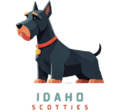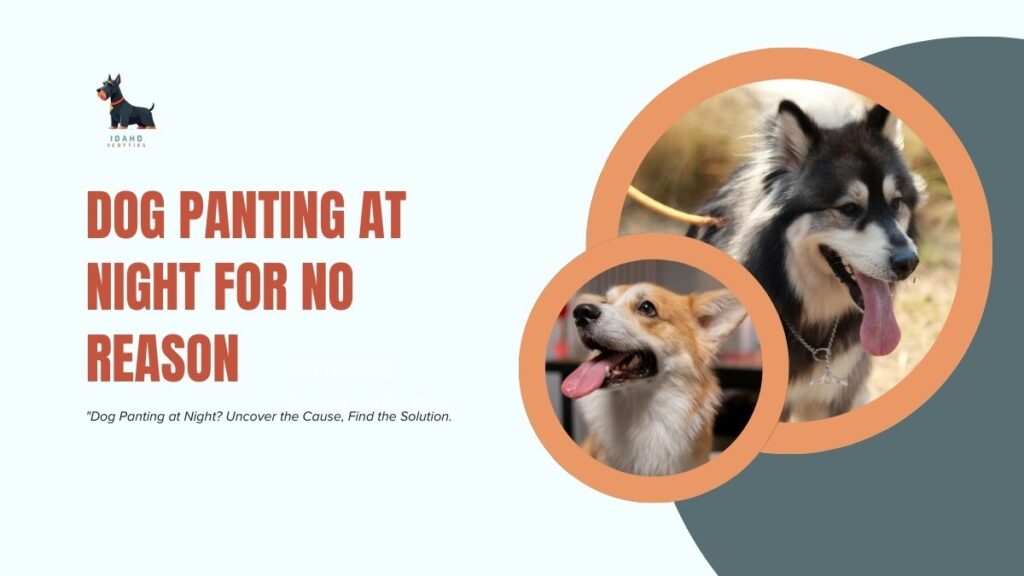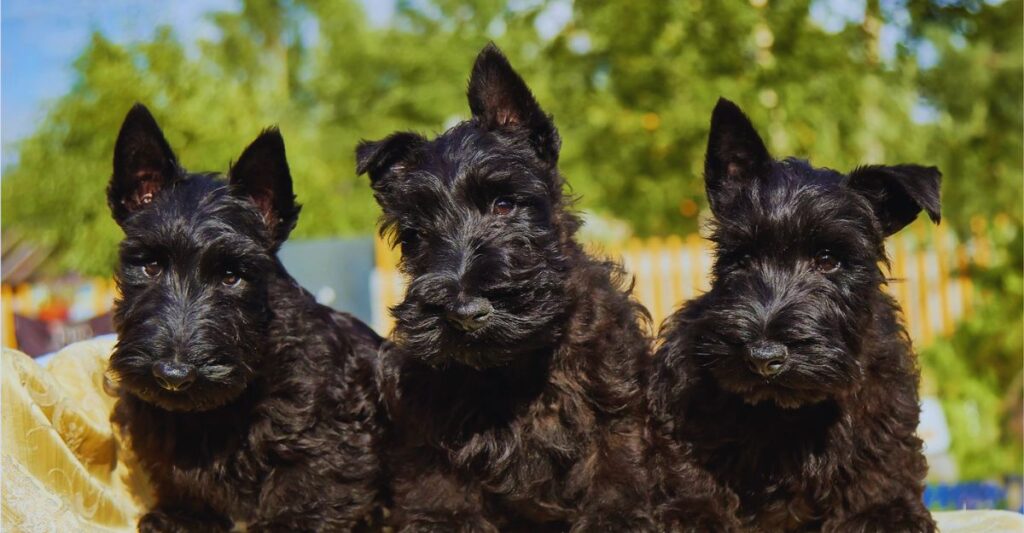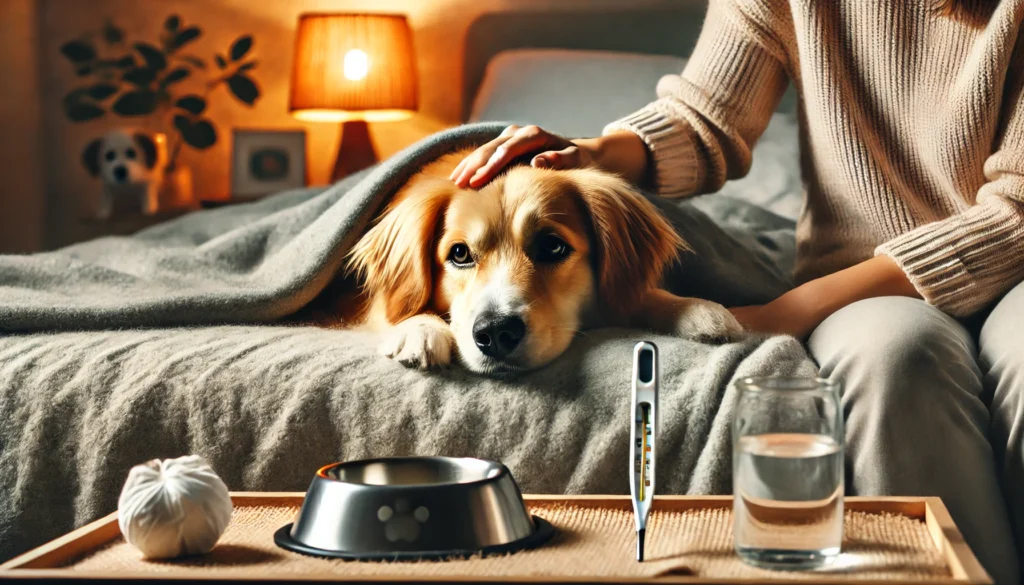Is your dog panting at night for no reason? Discover common causes, from anxiety to health issues, and learn when to seek vet care. Get expert tips to help your pup sleep peacefully!
It’s two in the morning. You’re sleeping peacefully when your dog starts to pant heavily. The room is reasonably cool, your dog has not been exercising, and their heavy breathing seems out of place. You must be wondering what the problem could be.
You are not the only one. Panicking and confusion stems from the fact that studies claim around 20% of dog owners worry when their pets are needlessly panting at night. While it is common for dogs to breathe heavily when trying to cool down, excessive restless breathing during sleep can cause alarm. This raises the question, is it discomfort, anxiety, or something waiting to unfold worse?
In this article, nighttime dog panting will be analyzed, providing explanations on the issue along with helpful suggestions and tips so your dog can rest better.
What’s Normal vs Abnormal Panting?
It is crucial to distinguish between healthy and pathological forms of panting.
Normal Panting
Dogs, like most mammals, have to help themselves cool down by panting following a period of exercise. They also tend to pant while sleeping, possibly from shifting and dreaming. Occasionally, short periods of light sleep panting is common and poses no health risk to the dog.
Abnormal Panting
While light panting during periods of inactivity is expected, excessive or strenuous panting may indicate a more serious issue with health. This includes periods of labored panting that lasts a long time or is accompanied by symptoms such as restlessness, pacing, drooling, or difficulty settling down.
If these behaviors persist, then it is advisable to explore the root cause further.
Common Causes of Dog Panting at Night for No Reason

If your dog is panting during the night for unclear reasons, it may be due to a myriad of reasons. Knowing this information can help you determine whether it’s something that poses no threat, or if it’s a potential health issue.
Environmental Factors
Heat or Poor Ventilation
If the room is stuffy, or is being overheated, your dog may begin to overheat, making it difficult for him to cool down. Thick bedding together with an overheated room can cause your dog to become too warm during the night, and he may start to pant.
Noise or Stress
Excessive noise and stress can also cause an impact on your dog’s sleep. Dogs that can be considered more sensitive are often prone to anxiety induced panting due to thunderstrikes, fireworks, or large, out of the ordinary sounds.
Dreaming
Dogs are also capable of dreaming, just like humans. Their bodies can respond to this by rapid breathing or panting during REM sleep, like how we talk when we are asleep. Although it is generally harmless, it may prompt you to wake up.
Age-Related Changes
Older dogs are sometimes known to suffer cognitive decline caused by arthritis, leading to discomfort. An older dog is more prone to night-time panting due to pain in the body or changes functioning of the brain.
Medical Issues
Pain or Discomfort
Excessive panting may be caused by arthritis, gastrointestinal problems, or even some recent trauma. Since dogs cannot communicate their pain like we can, they could use panting as a way to signal that they are in discomfort.
Respiratory Problems
Bulldogs and pugs are known to be more prone to breathing difficulties which could result in various issues. Panting at night can be quite common among brachycephalic breeds due to their short noses siffering them from getting enough air.
Heart Disease
Labored panting can be seen in dogs suffering from congestive heart failure because fluid in the lungs makes it harder to breathe. It can be particularly severe during the rest period at night.
Hormonal Imbalances
Excessive panting due to Cushing’s disease (overproduction of cortex) or hypothyroidism (under production of thyroid) can lead to unfortunate changes in the bodily functioning of a dog.
Poisoning or Toxins
Chocolate, household cleaners, or some plants can be considered toxic. Exposing your dog to these harmful substances could put him at risk of breathing as a side effect of poisoning.
Being aware of these reasons might help you determine whether the case of excessive breathing is something to be worried about as a health problem for your dog.
When to Worry?

Dog’s panting during sleep is completely normal, however, there are some signs that may indicate that there are underlying issues bothering your dog, which is why it is important to pay close attention to unexpected habits and issues.
Alert Warning Signs
Paniting more than thirty minutes.
If my dog chooses to continue to breath heavily and excessively for over thirty minutes without even moving like working out or staying in the sun, I am worried. This could possibly mean something important is wrong. You should ensure to take your puppy to the vet after experiencing these symptoms.
Panting while coughing or wheezing.
It is concerning for my dog’s health to take a glance at his tongue and see a striking blue or purple outline around the gums. These colors display a huge problem like oxygen deprivation caused by heart or breathing problems. A potential oxygen problem is without a doubt a major concern and should always be handled by experts.
Fatigue emerges, which leads to loss of interest in food and motivation for activity along with the waiting.
Seeing your dog with no interest in food and displaying less enthusiasm for activities like he or she used to shows signs of cancer, heart failure or something actually much worse.
Pacing or Drooling A Lot
When a dog puts together pacing and heavy drooling with panting, it could signify pain, anxiety, or even toxicity. Keep a close watch over your dog’s overall demeanor and don’t hesitate to seek veterinary help.
Breathing Problems
If your dog is puffing and panting and appears as if they are having trouble catching their breath, this is a big concern. If accompanied by a potential respiratory or cardiovascular problem, this will require veterinary assistance as soon as possible.
What to do immediately
It’s crucial to monitor the dog’s behavior carefully and consult a veterinarian for proper diagnosis and treatment. Don’t assume that the dog’s panting will end on its own. Timely action is very important in case the issue relates to heart disease.
Diagnosing the Issue

Figuring out exactly why your dog is panting at night requires a keen sense of observation and even some veterinary work, in some cases. Here is how you can assist in figuring out the problem in question:
What You Can Do On Your Own
Keep Track of When It Occurs – Make note of when the panting occurs. Is it happening at the same time every night? Is it associated with going to sleep, a specific noise, or a shift in temperature?
Look For Other Symptoms – Check for other symptoms like vomiting, limp, excessive drooling, or twitching that could show pain or discomfort.
Check The Room – Determine if your dog’s sleeping space is too hot, poorly ventilated, or has other sound disturbances such as loud noises.
Observe Actions Prior To Bedtime – If your dog is pacing up and down, will not lie down or keeps following you before they sleep, it means anxiety might be responsible.
Start A Symptom Diary – Note down changes in an animal’s appetite, water consumption, and general activity so you can tell the veterinarian.
Vet Examination
Should the nighttime panting be persistent or severe, a veterinarian can order some form of diagnostic testing in order to get to the bottom of the problem.
Physical Examination – The vet will look for and check for painful areas, verify if the animal is having breathing difficulty or has some internal organs problems.
Blood Tests – This helps rule out the presence of infections, hormonal problems such as Cushing’s disease and even organ failure.
X-Rays and ultrasounds are done to check for lung and heart problems, as well as for any concealed injuries.
An ECG checks the dog’s heartbeat and is especially important for older pooches and those breeds that are known to be more susceptible to heart problems.
Allergy and toxicity testing is useful if there are suspicions of an environmental cause or if poisoning is possible.
If these signs are caught early on, it makes it a lot easier to keep your dog healthy and avoid complications. If the unusual panting is coupled with other symptoms, consulting a vet is always the best choice.
Treatment & Management

Management of excessive nighttime panting varies with the associated condition. In order to make your panting dog more comfortable, the following measures may be useful:
Environmental Changes
Room Temperature Regulation – The area where your dog sleeps should be kept cool with air conditioning and fans or opened windows.
Providing Cooling Mats or Elevated Beds – These are especially useful for dogs that possess thick fur and help prevent overheating.
Minimization of Stressful External Noises – Thunderstorms and fireworks can be stressful for dogs. Using white noise machines, calm music and even soundproofing can help.
Appropriate Bedding – During warm days avoid thick blankets and ensure your dog’s bed is orthopedically supportive and use his bed during summer, especially for geriatric dogs.
Availability of Hydration – Place cooling fresh water near the sleeping area to allow cooling and to prevent dehydration.
Medical Changes
Relief of Suffering – Vets may offer anti – inflammatory drugs or pain killers to deal with the panting associated with pain like arthritis or injuries.
Respiratory and Cardiac Treatment – Dogs suffering from heart problems or breathing issues may be put on medication to aid in breathing or heart function.
Hormonal or Metabolic Treatment – Diabetic dogs or dogs suffering from Cushing’s disease or hypothyroidism may need treatment in the form of medication or dietary modification and may even need these modifications throughout life.
Allergies- If the dog is having allergic reactions or suffers from poisoning, a vet must be consulted immediately.
Behavioral Support
Training for Anxiety – Separation anxiety and loud noises can be managed using techniques like counter conditioning and desensitization.
Calming Aids – Pheromone diffusers coupled with calming chews or medications, when prescribed, are some ways to manage anxiety.
Senior Dog Comfort – Elderly dogs require additional care such as orthopedic beds, joint supporting supplements, and a well-structured night routine.
Regular Exercise & Mental Stimulation – Reducing stress and restlessness at night can be achieved by keeping the dog active during the day.
Making these changes can lead to the dog feeling well rested at night and secure during the day.
Prevention Tips

Anticipating possible future problems will aid in mitigating nighttime panting and help keep your dog comfortable.
Create Ideal Conditions For Sleep
Ensure Spaciousness & Low Temperature Room – Make sure that airflow is available from fans, windows, air conditioning, or other means during hot weather.
Use Orthopedic or Cooling Beds – Especially helpful for seniors or thick-coated dogs, it prevents overheating and supports joint health.
Reduce Noise & Light Exposure – Using blackout curtains, soft music, or white noise machines can bring about a soothing environment.
Safe Place With Comforting Features – Cozy beds placed in serene corners could bring down anxiety-driven panting.
Planning Regular Vet Visits
Set Appointments For Check-Ups – Heart disease, arthritis, or respiratory issues could be caught early on which will better the symptoms.
Be Aware Of Weight & General Health – Breathing problems and discomfort during the night could be enabled by obesity.
Ensure Vaccination & Parasite Control – Stress and discomfort could be brought on by fleas, ticks, and infections.
Plan Exercise & Diet
Refrain From Any Strenuous Activity During Night Hours – Late strenuous physical activities could bring dangerously high temperature which makes one restless.
Regulate Feeding, Food Portions, and Water – Adding too much food portion for the meal too close to bedtime can provide digestive discomfort, while excess intake of water will yield restless sleep.
Offer a Subtle Winddown Routine: Relaxing activities such as light walks or simply sitting still can help prepare the body for sleep.
Anxiety & Stress Management
Create a Routine for Bedtime: Dogs, like other animals, get stressed without routine, and having a set schedule helps alleviate that stress.
Try Natural Calming Aids: Lavender scent, pheromone diffusers, or supplements from the vet can help with anxious dogs.
Tackle Separation Anxiety: Gradual training combined with crate training can help anxious dogs who become stressed when left alone at night.
Incorporating these strategies will allow your dog to relax, enjoy a restful night’s sleep, decrease excessive panting, and improve his overall wellness.
Conclusion
A variety of issues, such as anxiety, overheating, or a potential medical condition, can cause dogs to whine during sleep. While occasional panting is within the range of normal, peculiar or extreme panting should be investigated further.
When dogs are exhibiting concerning symptoms such as feeling restless or uncomfortable, it is advisable to consult with a veterinarian for the best ongoing care.
As for the good news, with the right treatment, most causes of nighttime whining can be managed or treated. Paying close attention to your dog’s unique needs will allow them to maintain their happiness along with restful sleep.
Frequently Asked Questions
Can anxiety cause nighttime panting?
Certainly, anxiety is one of the common reasons that cause excessive panting at night. Separation, loud noises such as thunderstorms or fireworks, or even a change in environment can cause a dog to feel anxious. If your dog is nervous or has certain triggers, this may explain the reason why your dog pants during the night.
Why does my old dog pant more at night?
Senior dogs frequently experience increased night time panting due to age-related changes. This may be due to several factors such as discomfort caused from arthritis pain, decline in mental faculties similar to dementia, or discomfort from underlying health problems. Furthermore, older dogs have greater difficulty with temperature moderation, making panting more common.
Is panting a sign of a dog stroke?
Unless it is accompanying other symptoms, panting by itself in dogs generally isn’t a symptom of a stroke. On the other hand, loss of balance, sudden collapsing, unusual rotational eye movements, and disorientation are stroke symptoms in dogs. If you see any of these symptoms combined with the dog’s panting, it is advisable to seek veterinary advice promptly.
Pet trainer with a passion for helping animals and owners build strong, loving bonds through positive reinforcement and expert care.



